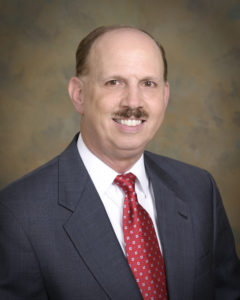Texas Hospital’s Vaccination Mandate For COVID-19 Upheld by Federal Court

As some states lift COVID-19 restrictions, the business community is still grappling with the dynamic between the COVID-19 vaccine and workplace operations. To address this, some U.S. employers have elected to adopt mandatory vaccination policies. These policies, in essence, require that, subject to a few exceptions, all employees must receive the COVID-19 vaccine as a condition of continued employment.
Not surprisingly, we see various legal challenges to mandatory COVID-19 vaccination policies across the country. On June 12, 2021, a federal court in Texas became the first to rule on the permissibility of such policies […]


 By George F. Indest III, J.D., M.P.A., LL.M., Board Certified by The Florida Bar in Health Law
By George F. Indest III, J.D., M.P.A., LL.M., Board Certified by The Florida Bar in Health Law By George F. Indest III, J.D., M.P.A., LL.M., Board Certified by The Florida Bar in Health Law
By George F. Indest III, J.D., M.P.A., LL.M., Board Certified by The Florida Bar in Health Law By George F. Indest III, J.D., M.P.A., LL.M., Board Certified by The Florida Bar in Health Law
By George F. Indest III, J.D., M.P.A., LL.M., Board Certified by The Florida Bar in Health Law By George F. Indest III, J.D., M.P.A., LL.M., Board Certified by The Florida Bar in Health Law
By George F. Indest III, J.D., M.P.A., LL.M., Board Certified by The Florida Bar in Health Law By Castillana F. Duvernay, J.D.
By Castillana F. Duvernay, J.D.
 By George F. Indest III, J.D., M.P.A., LL.M., Board Certified by The Florida Bar in Health Law
By George F. Indest III, J.D., M.P.A., LL.M., Board Certified by The Florida Bar in Health Law